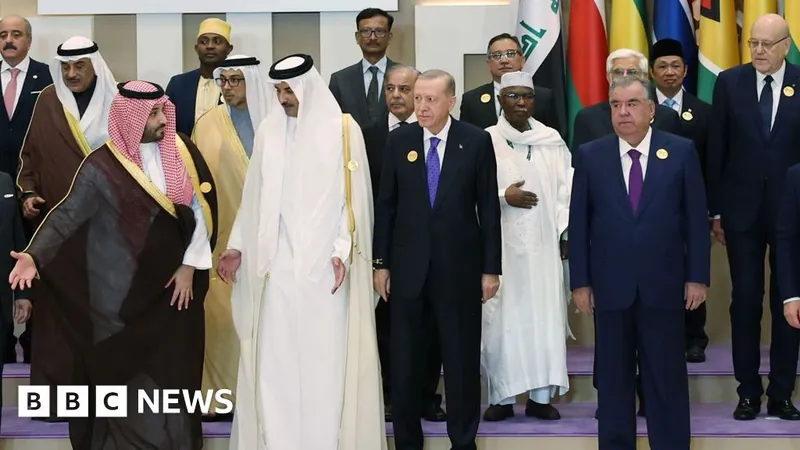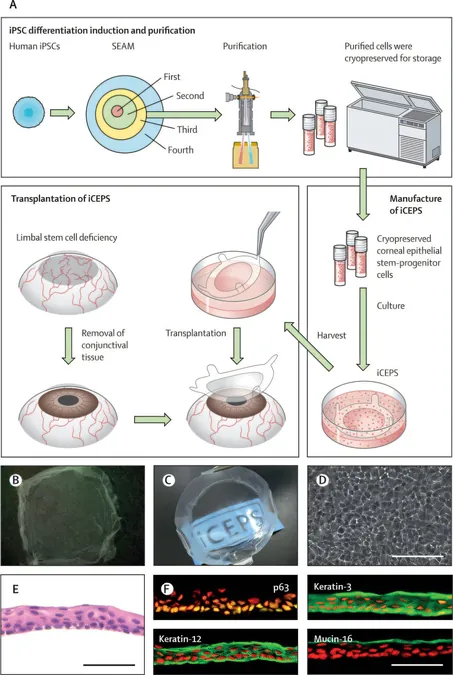
Saudi Crown Prince Makes Bold Accusations Against Israel, Calls Actions in Gaza ‘Genocide’
2024-11-11
Author: Jia
Saudi Crown Prince's Accusations
In a significant escalation of rhetoric, Saudi Crown Prince Mohammed bin Salman has publicly condemned Israel’s military actions in Gaza, labeling them as "genocide." This statement marks one of the most severe critiques from a high-ranking Saudi official since the outbreak of hostilities.
Call for Immediate Withdrawal
During a recent summit of Muslim and Arab leaders, Prince Mohammed not only condemned Israel’s operations in Gaza but also denounced its airstrikes against Lebanon and warned against any further escalations involving Iran. His comments highlighted a growing cooperation between Saudi Arabia and Tehran, two regional rivals, as he made it clear that Israel's actions would not be tolerated on Iranian soil.
Unified Stance Against Israel
The prince was joined by other leaders in calling for an immediate and total withdrawal of Israeli forces from both the West Bank and Gaza, reflecting a unified stance against what they termed "aggression" by Israel. This gathering of leaders also served as a platform to address the broader impacts of the ongoing conflict.
International Community's Inaction
Echoing the Crown Prince’s sentiments, Saudi Arabia's Foreign Minister Prince Faisal Bin Farhan Al-Saud criticized the international community for its inaction, describing the prevalent starvation and humanitarian crisis in Gaza as a direct consequence of Israel’s military actions. He asserted, "Where the international community primarily has failed is ending the immediate conflict and putting an end to Israel’s aggression."
Background of the Conflict
The conflict reignited on October 7, 2023, following an unprecedented assault by Hamas that resulted in the deaths of approximately 1,200 Israelis and the hostage-taking of 251 individuals. Israel retaliated with a large-scale military campaign aimed at dismantling Hamas, leading to a staggering death toll in Gaza—over 43,400 casualties according to health officials associated with Hamas. A UN Human Rights report revealed that nearly 70% of those killed were women and children, amplifying the dire humanitarian crisis unfolding in the region.
Alarming Violence Against UN Personnel
The summit also spotlighted an alarming pattern of violence against UN personnel and facilities in Gaza, drawing condemnation from many leaders present. In a controversial move, Israel's Knesset recently passed legislation restricting the UN Relief and Works Agency for Palestine Refugees (UNRWA) from operating in Israel and East Jerusalem, spurring concerns from the United States and the United Kingdom about the implications for aid delivery to Gaza.
Geopolitical Dynamics and Trump's Influence
Amidst this tumultuous backdrop, former U.S. President Donald Trump’s potential return to political power looms large over the region. Gulf leaders are keenly aware of Trump’s strong ties with Israel while also maintaining good relations with him. There is a hope that he may leverage his influence and unique approach to negotiations to forge an end to the ongoing hostilities.
Trump's Mixed Legacy in the Middle East
In Saudi Arabia, Trump is viewed more favorably than President Joe Biden, despite a mixed legacy in the Middle East that included actions both lauded and criticized by different factions. His recognition of Jerusalem as Israel's capital and endorsement of the annexation of the Golan Heights caused outrage in the Muslim world but were celebrated within Israel. Conversely, Trump’s role in establishing the Abraham Accords—normalizing relations between Israel and several Arab nations—marked a pivotal shift in regional diplomacy.
Conclusion
As the region watches closely, one Saudi newspaper editorial poignantly reflects the sentiment, stating: "A new era of hope. Trump’s return and the promise of stability." The dynamics in the Middle East continue to evolve, and the coming months may unveil crucial developments in peace efforts and geopolitical relations.




 Brasil (PT)
Brasil (PT)
 Canada (EN)
Canada (EN)
 Chile (ES)
Chile (ES)
 España (ES)
España (ES)
 France (FR)
France (FR)
 Hong Kong (EN)
Hong Kong (EN)
 Italia (IT)
Italia (IT)
 日本 (JA)
日本 (JA)
 Magyarország (HU)
Magyarország (HU)
 Norge (NO)
Norge (NO)
 Polska (PL)
Polska (PL)
 Schweiz (DE)
Schweiz (DE)
 Singapore (EN)
Singapore (EN)
 Sverige (SV)
Sverige (SV)
 Suomi (FI)
Suomi (FI)
 Türkiye (TR)
Türkiye (TR)